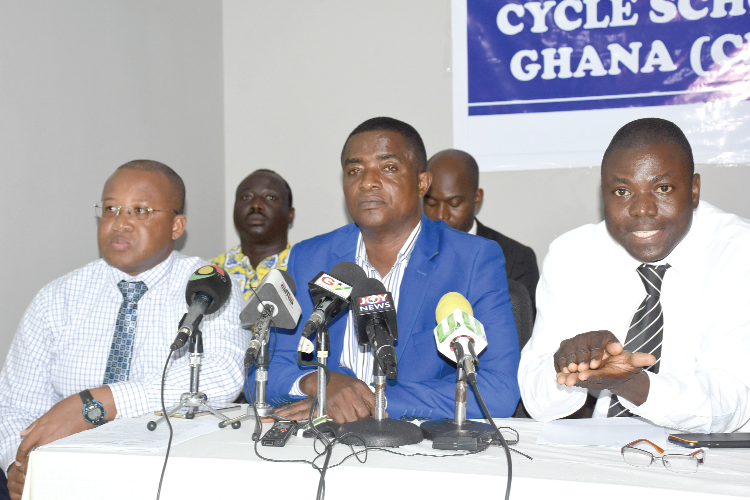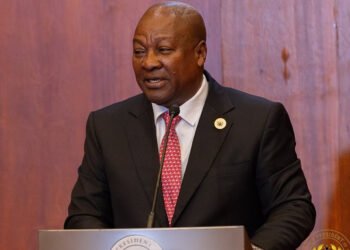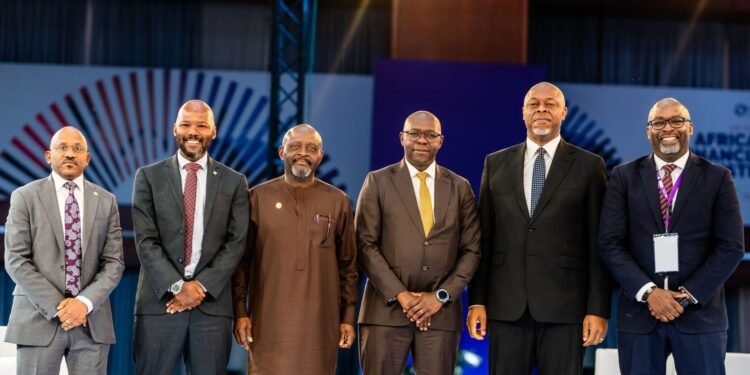The Ministry of Education has announced that it will pay GHS 994 annually for every student enrolled in private schools participating in the government’s Free Senior High School (SHS) programme.
The initiative, according to the Minister of Education, Hon. Haruna Idrissu, is part of ongoing reforms to expand access to quality education while easing congestion in public schools under President John Dramani Mahama’s administration.
The announcement was made during the signing of a Memorandum of Understanding (MoU) between the Ministry of Education and the Conference of Heads of Private Second Cycle Schools. The agreement formalises the inclusion of selected private SHSs in the Free SHS policy, marking a major shift in the government’s approach to equitable educational access.
According to the Minister of Education, the government is determined to ensure that the policy’s benefits extend beyond public institutions, particularly as part of efforts to eliminate the double-track system that has burdened many public SHSs in recent years.
“Of the seven day schools that are benefiting from this pilot, the Government has been able to place at least 25,000 in the private schools. The government is committed to providing a stipend to support the transition of that category of students moving into private schools”
Hon. Haruna Iddrisu, Minister of Education

The Minister explained that the decision to start with day students was informed by logistical considerations and the need to test the efficiency of resource distribution before expanding to other categories.
He further explained that the GHS 994 allocation represents a pilot phase, with provisions for future review as the Ministry assesses its impact and sustainability – emphasising that the initiative was not only a financial intervention but also a strategic measure to ensure that all qualified students “can access senior high education without interruption.”
Hon. Iddrisu noted that while the GHS 994 stipend is a starting point, the government remains open to further discussions with stakeholders to refine the structure as the policy aligns with President Mahama’s broader vision of “educational inclusivity and sustainable development.”
The Minister of Education added that the partnership with private schools underscores the government’s recognition of their role in Ghana’s education ecosystem.
By bridging public-private collaboration, the initiative seeks to “improve infrastructure, balance student placement, and strengthen the delivery of secondary education,” across the country.

Private Schools Welcome the Initiative
President of the Conference of Heads of Private Second Cycle Schools, Mr. I. K. Mensah, welcomed the agreement, describing it as a timely intervention that will benefit students, parents, and private school operators alike.
He said the partnership reflects the government’s commitment to collaboration and inclusivity in implementing national education policies.
“For now, during this pilot system, the government is going to place only day schools on the system by paying 994 cedis for children in private second-cycle schools. We know some private schools have different payment plans for their day students and their boarders – but it will all be taken care of”
Mr. I. K. Mensah, President of the Conference of Heads of Private Second Cycle Schools
He explained that parents who wish to have their wards stay in boarding facilities can top up the government’s contribution, depending on the fees of their preferred schools. “If you think your child comes from far away and wants to access a boarding facility, but was placed as a day student, then you sit with the school and pay the difference,” he said.
Mr. Mensah further assured that private schools will cooperate fully with the Ministry to ensure the pilot’s success and uphold transparency in managing government contributions.

The Minister of Education reaffirmed that the Free SHS initiative remains a cornerstone of Ghana’s human capital development agenda. He said the inclusion of private schools is not only a policy expansion but also a deliberate effort to ensure equity in opportunity and efficient use of educational infrastructure nationwide.
According to Hon. Idrissu, the government remains committed to phasing out the double-track system by broadening access, improving infrastructure, and fostering effective collaboration with all education stakeholders.
The GHS 994 allocation, it said, demonstrates President Mahama’s renewed focus on fairness, inclusion, and educational quality for all Ghanaian students.
READ ALSO: ADB Partners GhIPSS to Revolutionize Payments with Near Real Time (NRT) Transfers






















